#visa
Japan Digital Nomad Visa
The long-awaited Japan Digital Nomad Visa has been officially launched! From a list of eligible countries to requirements, here’s all you need to know.
The long-awaited Japan Digital Nomad Visa has been officially launched! From a list of eligible countries to requirements, here’s all you need to know.

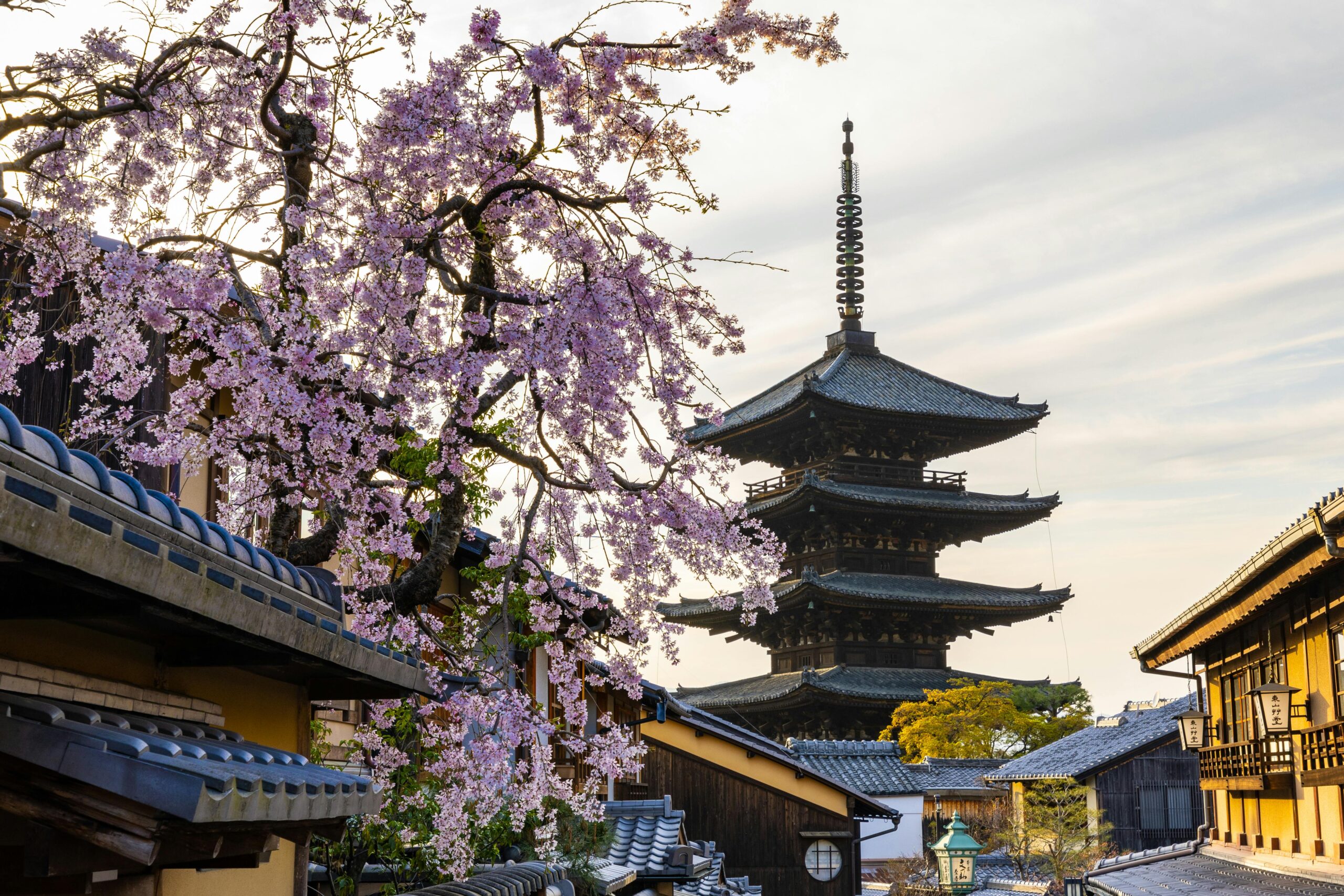
Japan has not previously offered a digital nomad visa, despite ongoing discussions about the necessity of creating one.
However in 2024, there has been a recent breakthrough announcement regarding the decision to issue six-month visas specifically for digital nomads, subject to certain requirements, such as having an annual income of 10 million yen or more.
The Digital Nomad visa, officially called the ‘Designated Activities’ Visa (for Digital Nomads / Spouses or children of Digital Nomads), is granted to individuals who will be staying in Japan to work remotely for companies based overseas for a period of less than 6 months, or to the spouse or child of the applicant.
The Digital Nomad Visa is targetting high-earning remote workers. Entrepreneurs and youtubers can apply too.
The authorized activities under the Digital Nomad Visa can be divided into two categories:
2. Providing services for a fee or selling goods to individuals in a foreign country using remote communication technology.


You will need to be able to prove that you can generate 10 million yen in the coming year when you plan to stay in Japan as a digital nomad.
You must be nationals or citizens of countries/regions covered by the visa exemption arrangements (Temporary Visitor) and subject to Japan’s Tax Conventions. Here is the list:
Are you from one of the countries in the list? Keep reading!
Here is the list for the spouse or child of a Digital Nomad:
To summarize, see if you meet the main requirements for the digital nomad visa.
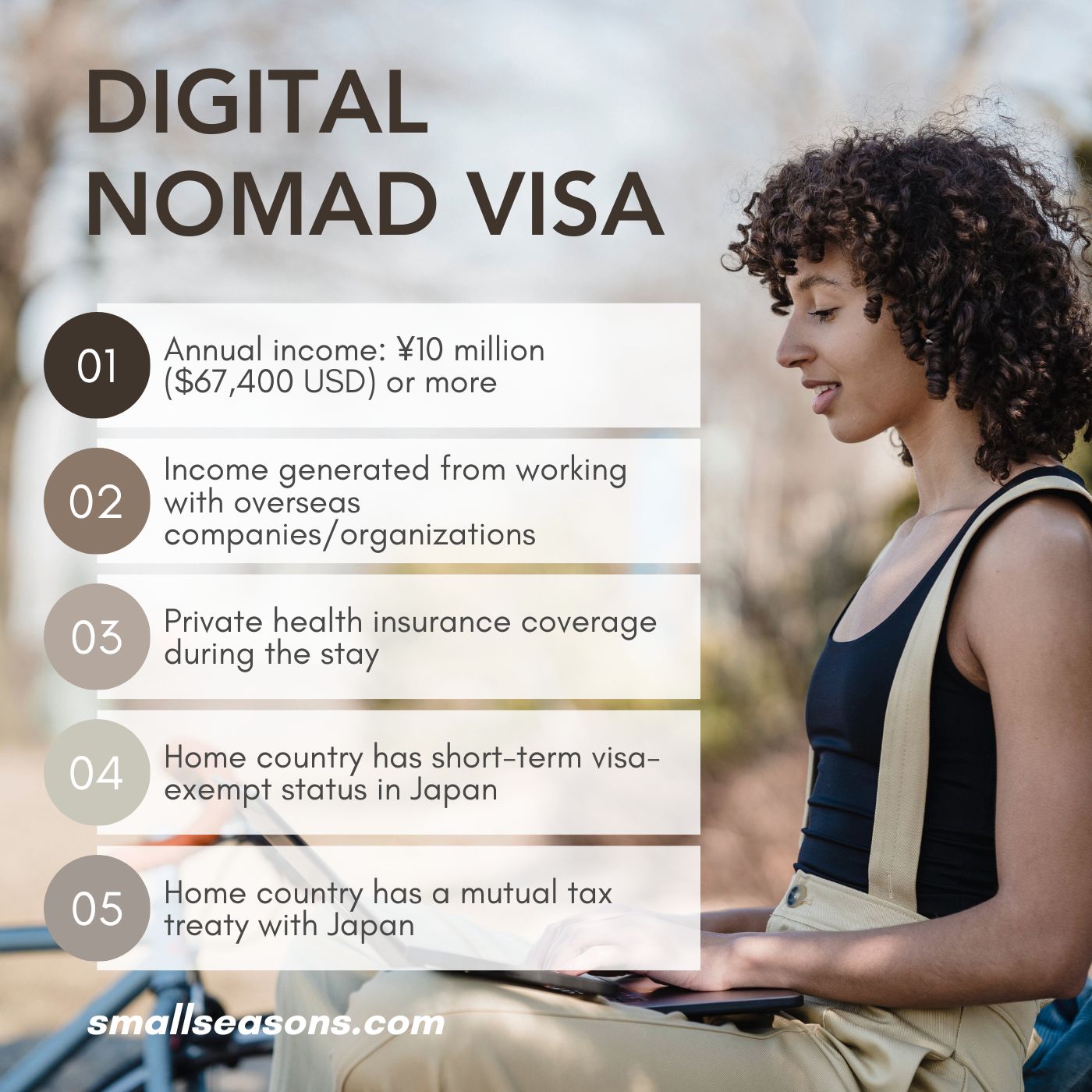
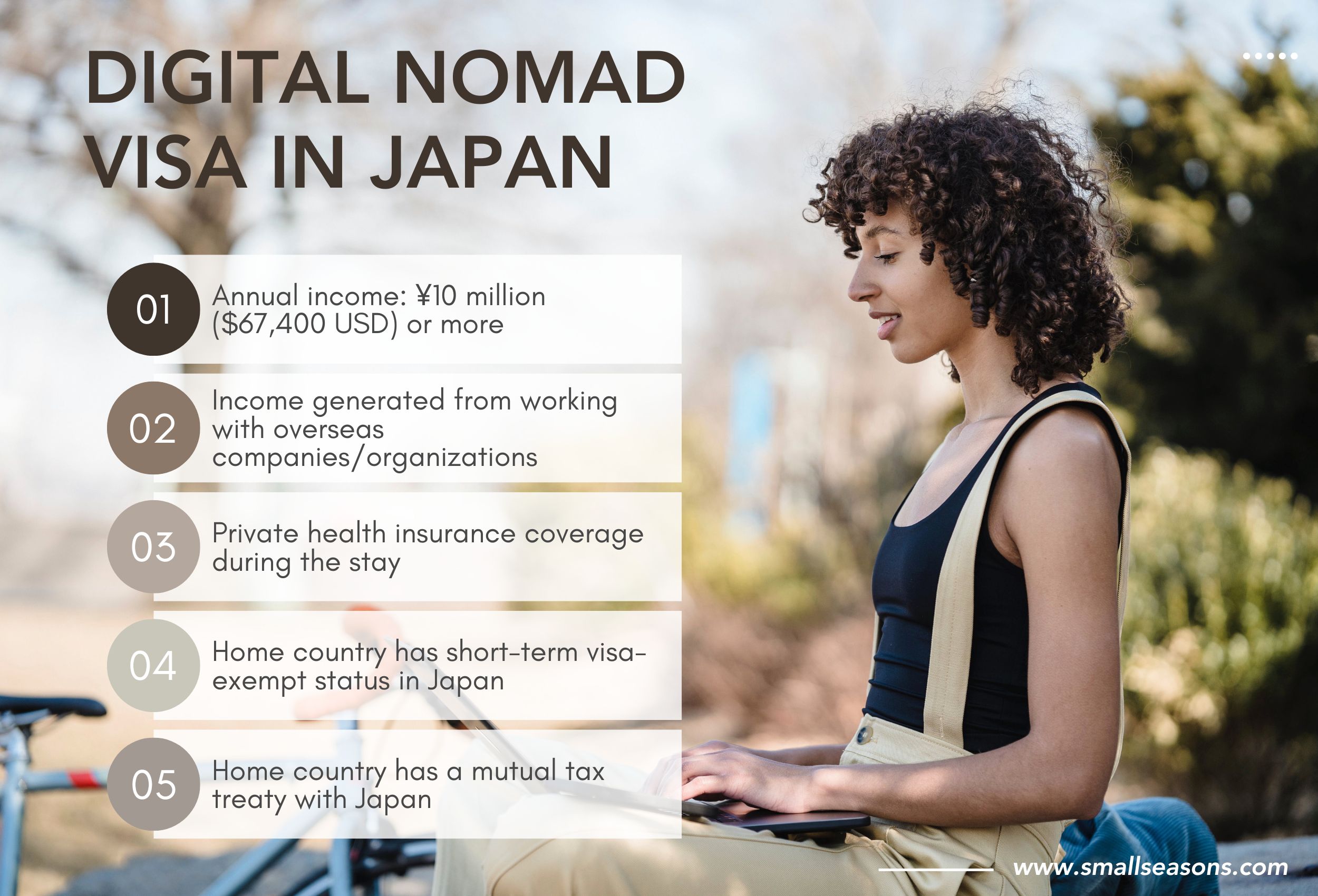
Here is the list of required documents to apply for the Japan Digital Nomad Visa.
There are some exceptions, depending on the documents you can or cannot submit. If you are unable to provide the standard required documents, you will need to include an explanation letter detailing why you cannot submit the specific document, along with an alternative document.
Reference: Ministry of Justice – Digital Nomad Visa
While the current tourist visa, which is valid for a maximum of 90 days, prohibits engaging in income-generating activities, the digital nomad visa offers the opportunity to reside and work legally in Japan. However, it has a limit of 6 months, and reapplication is only possible after a 6-month interval.
Spouses and children of the visa holder are allowed to stay in Japan under this program, if they meet the requirements.
Not having residential status still restricts your ability to open a corporate bank account or rent an apartment, limiting your potential for a long-term stay and to be based in Japan.


While the major shift in Japan’s approach towards freelancers provides opportunities for many, if you are seeking to secure a long-term visa with a residential status to establish your life in Japan, there are other visa categories that you can explore.
If you are an entrepreneur looking to either expand your existing business in Japan, leveraging a client base in the country, or if you have a promising opportunity and wish to start a new business, the Business Manager Visa is worth considering.
This initiative, implemented by several cities in Japan, reduces some initial requirements typically associated with traditional business manager visas, making it easier for foreign nationals to enter Japan’s market and launch new ventures. If you are thinking of starting a business in Japan but don’t have a local partner to support you with the business establishment process, this visa might be a good option to consider.
The working holiday visa program allows young people from certain countries to live and work in Japan for a limited period, up to one year. It provides an opportunity to experience Japanese culture, travel around the country, and supplement travel funds through temporary employment. However, it’s important to note that this is primarily a holiday visa, so individuals should be mindful of the type of work they engage in.
If you are an artist with significant accomplishments, such as winning an award or collaborating with major brands, you could explore the option of applying for the Artist Visa with a sponsoring company or self-sponsoring the visa.
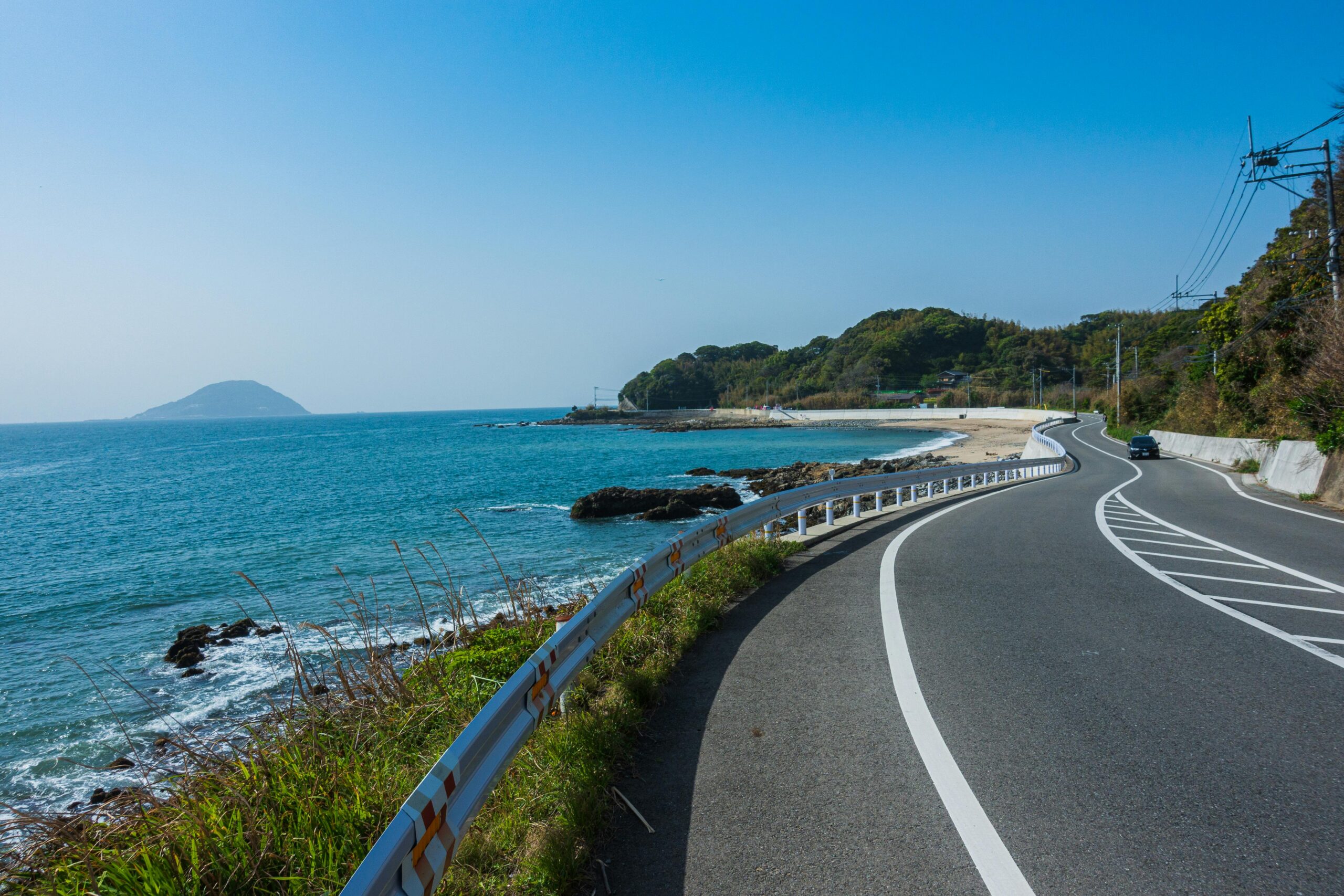
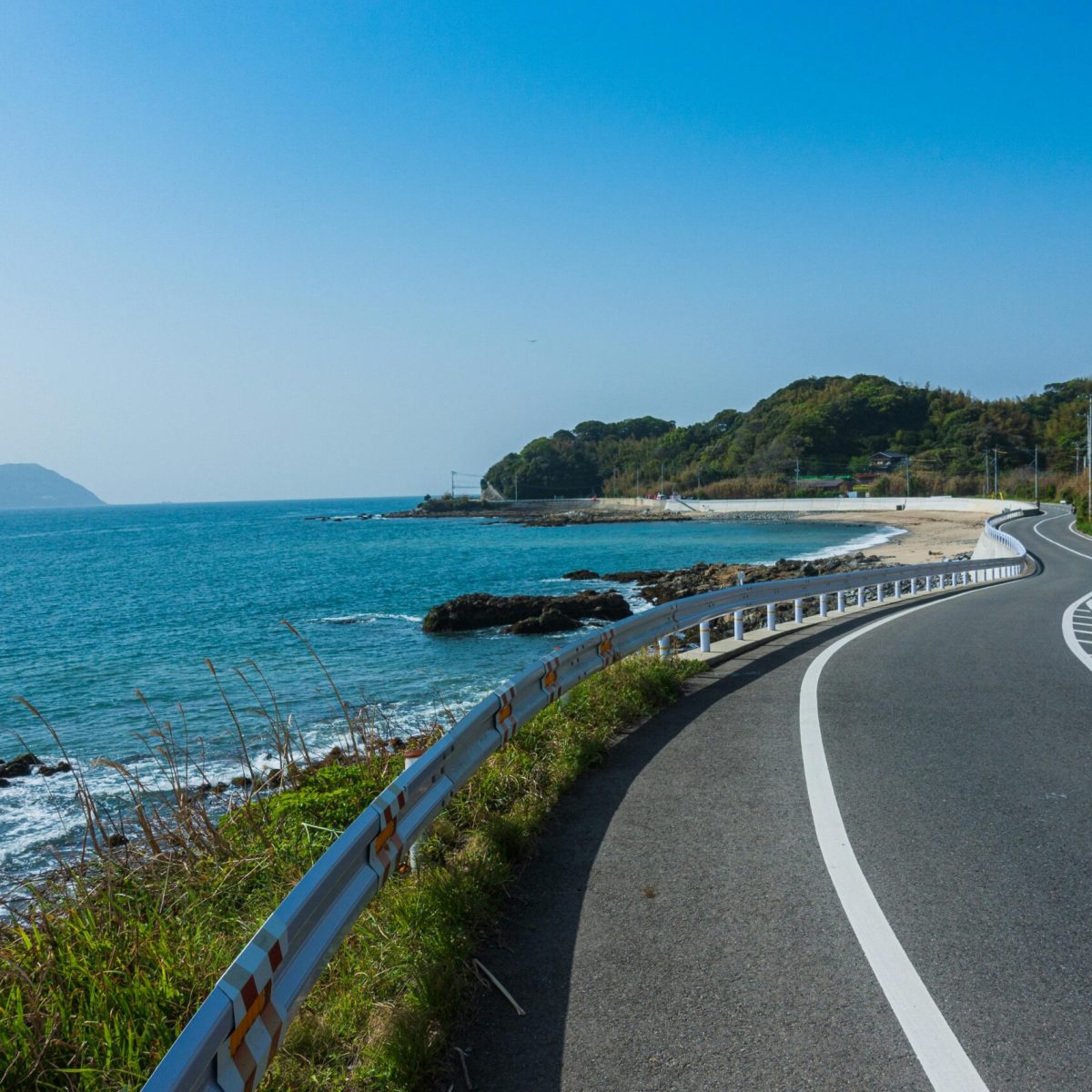
Fukuoka is gaining attention as a hub for startups due to its efforts to promote innovation and openness. With their startup visa, they also demonstrate support for the foreign community, opening up opportunities for foreigners. Accessible by bullet train and only 10 minutes from Fukuoka International Airport, the city is surrounded by both mountains and ocean, making it an excellent option for those seeking a slower, nature-focused lifestyle while still enjoying the benefits of diverse cultures and local delicacies.
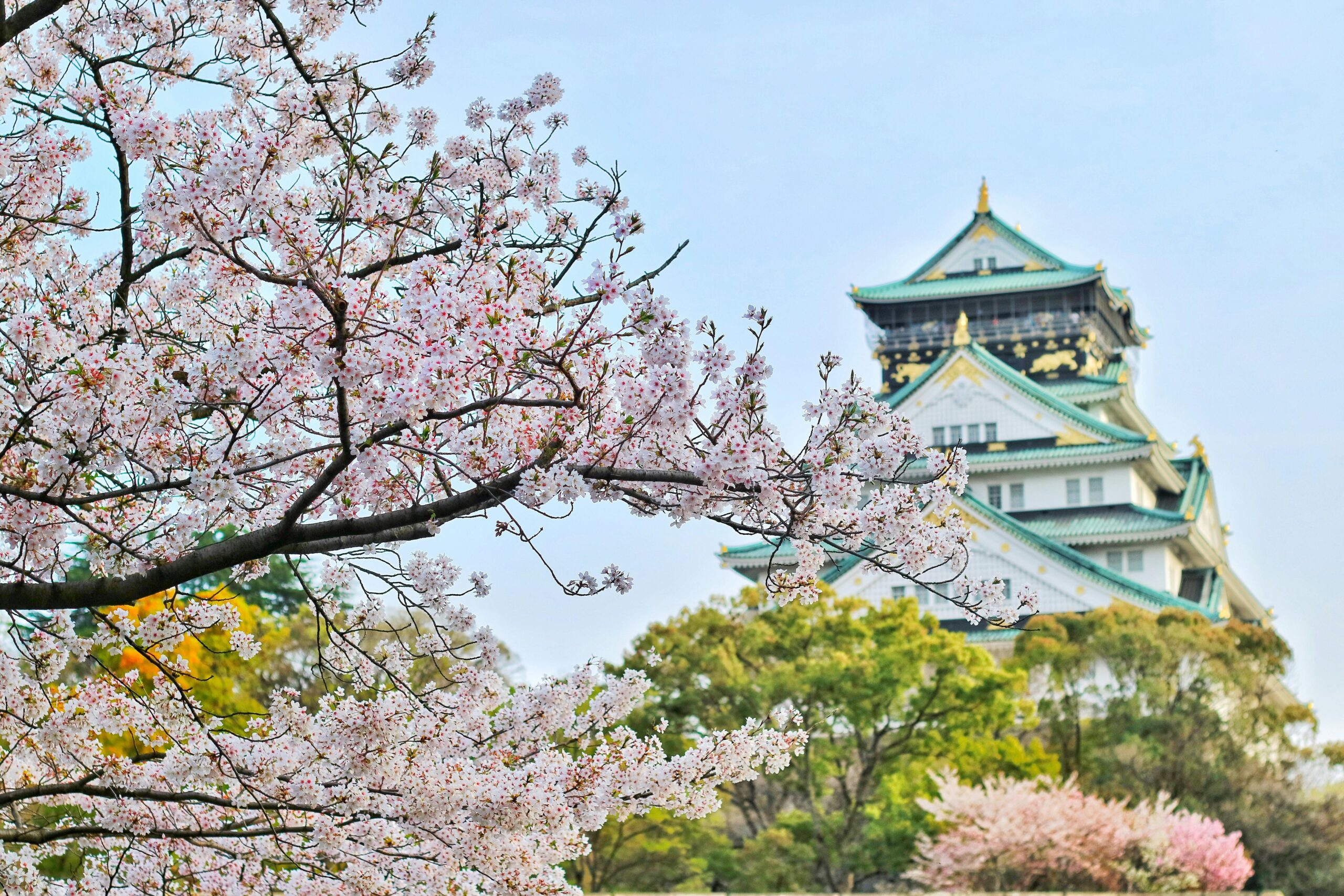
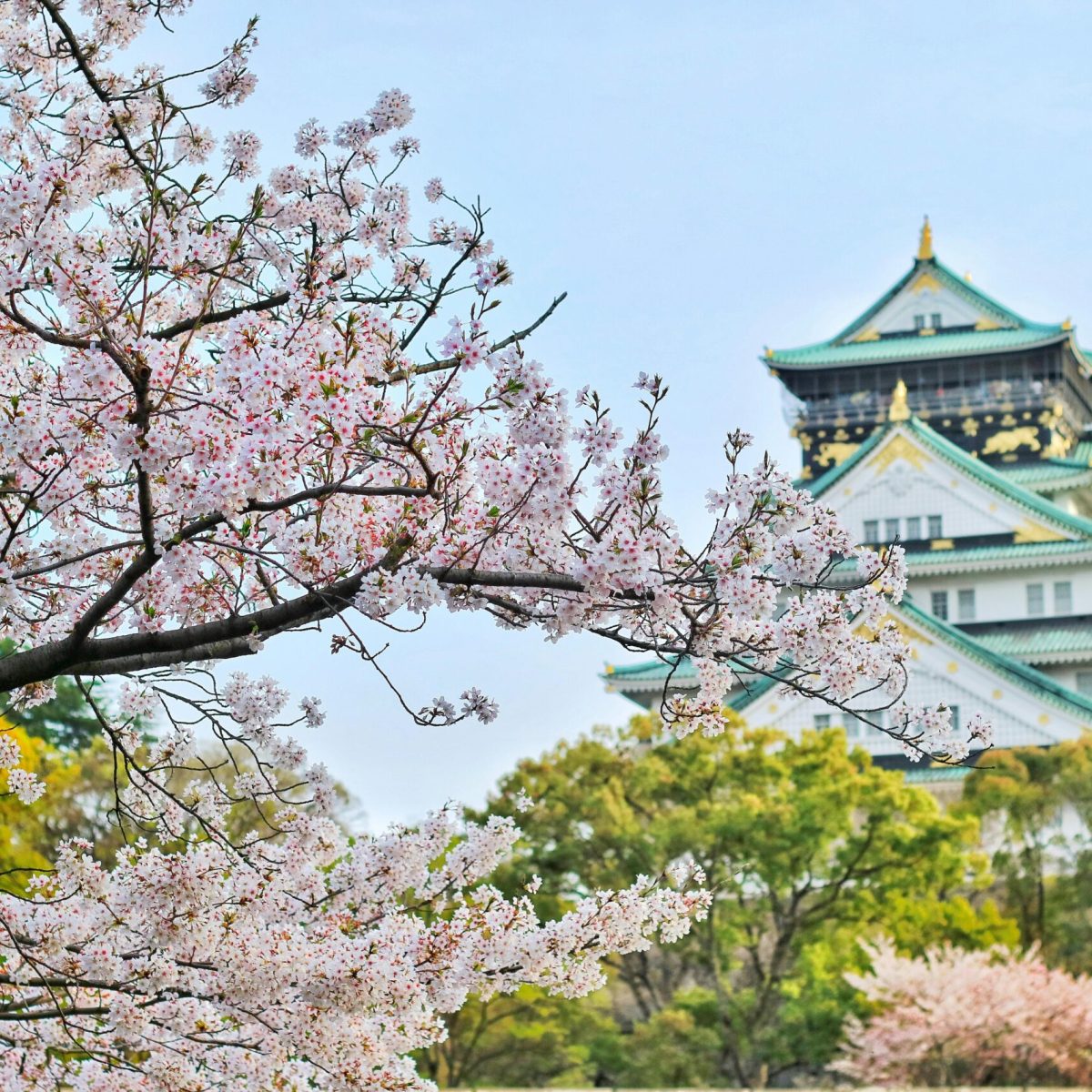
People in Osaka are known for their friendliness, and the city is famous for its vibrant nightlife, including izakayas, bars, and restaurants. If you enjoy city life but want to experience something different from Tokyo, while also having easy access to culturally rich prefectures like Kyoto and Nara, Osaka might be the right choice for you. Additionally, Osaka City offers startup visas.
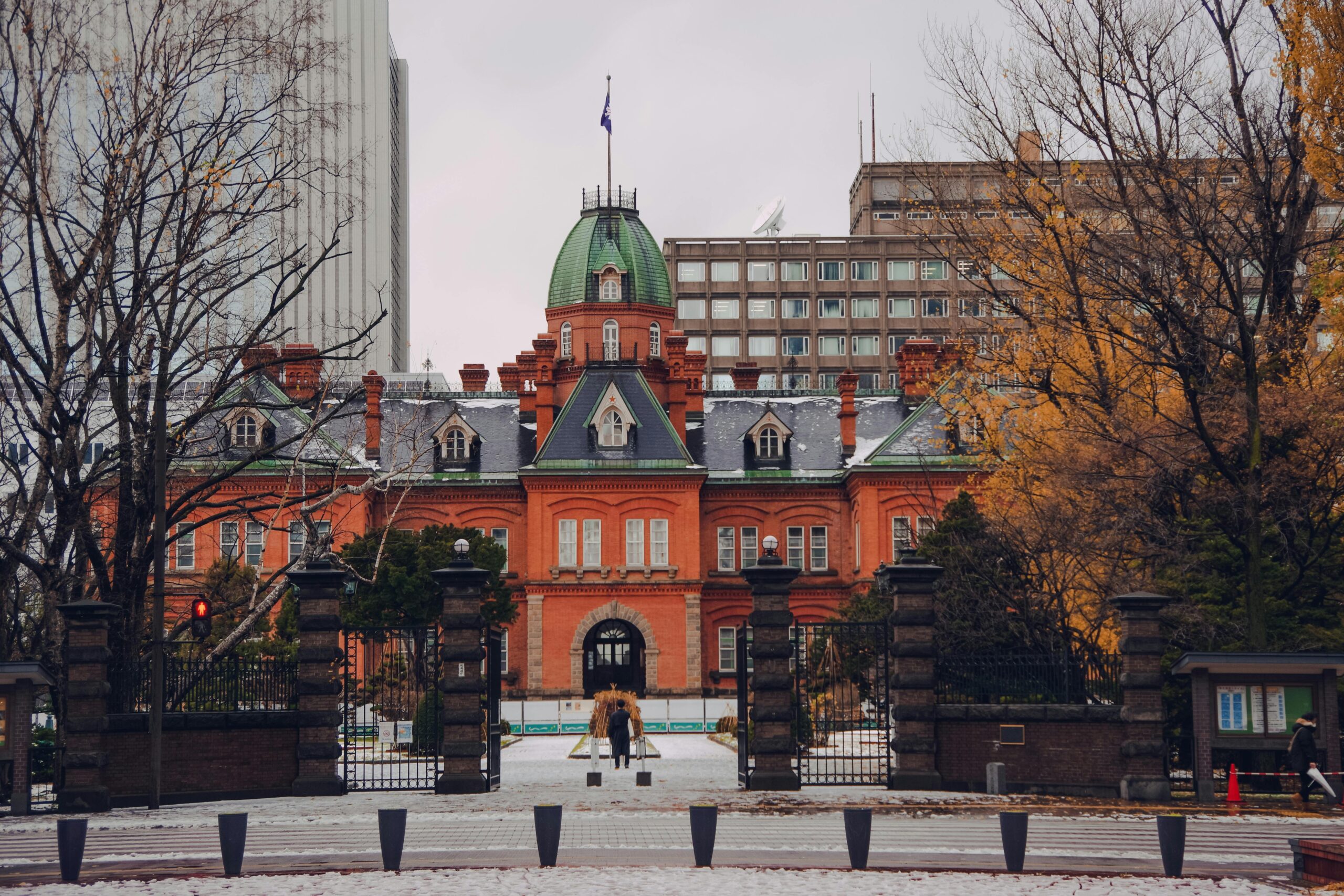
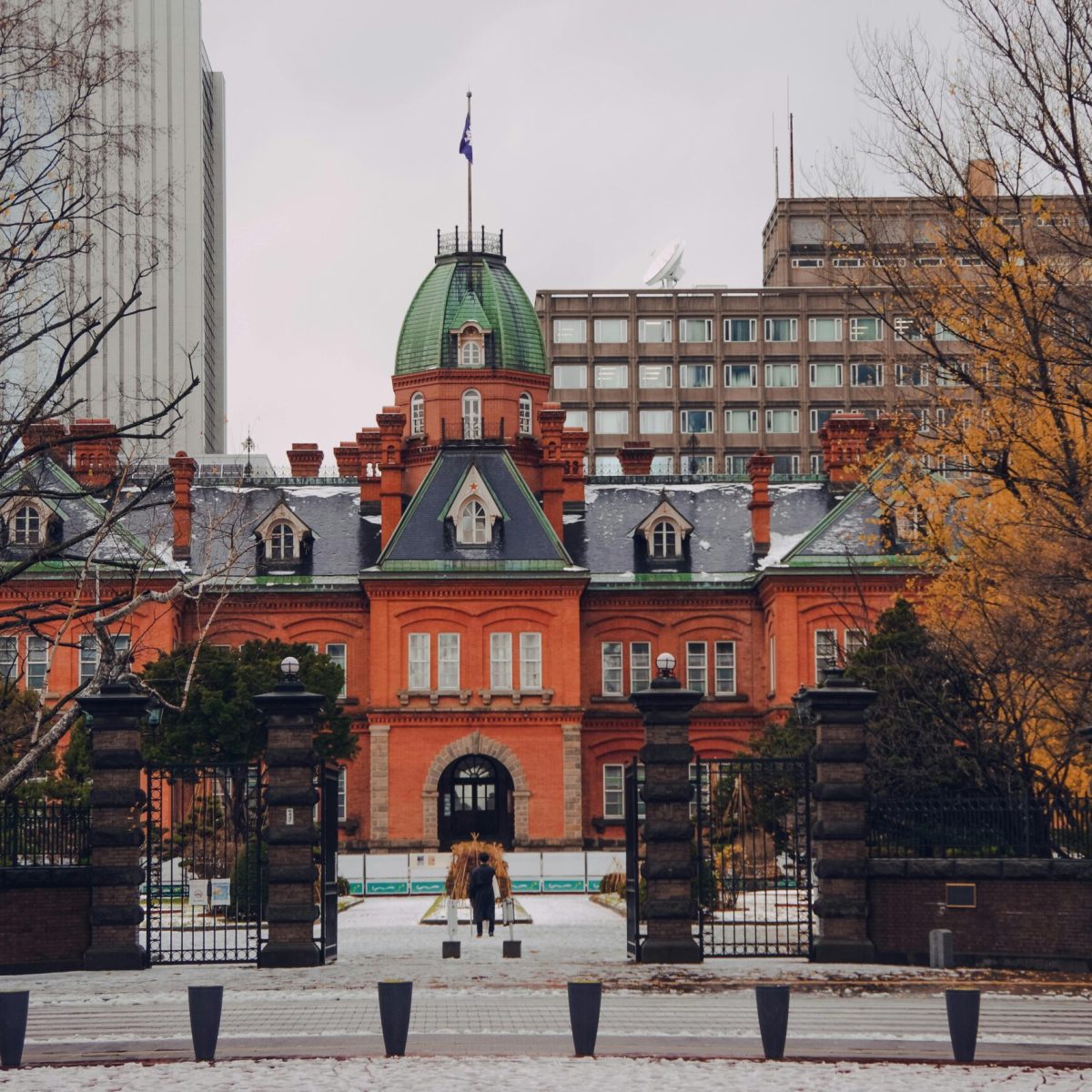
Another highly recommended destination in northern Japan unveils a side of the country’s nature that often goes unnoticed! Known as a “mecca” for winter sports enthusiasts, it offers an ideal blend of natural beauty, urban charm, and rich history. Additionally, it provides startup visa opportunities, and you’ll be surprised to find ski lodges owned by foreign entrepreneurs. With its appeal to foreign nationals seeking unique experiences and its openness to foreigners, the city is an attractive option.


If your purpose is to relocate to Japan or find ways to live in Japan, we can help you as an immigration lawyer’s office to explore your possible options from work visa to permanent residency.
If you have a business and want to bring it to Japan to expand, or if you have a company you could potentially work for but want to also engage in remote work independently, there could potentially be a perfect solution for you to pursue.
Book a discovery call with us to let us know your needs!
The visa application process varies depending on whether you are currently a resident in Japan or based outside of Japan. Below is the general workflow if you were to work with us at Small Seasons & Co. to apply for your residential status from abroad.
Initial Consultation (Paid Service):
Engage in an initial paid consultation to discuss your needs.
Estimation Confirmation:
Review and confirm the estimate issued by Small Seasons & Co.
Contract Signing and Advance Payment:
Sign the contract and make the required advance payment.
Strategy Session:
Participate in in-depth discussions regarding timelines and required materials.
Document Collection and Signing:
Obtain necessary items and complete the required document signings.
Certificate of Eligibility (COE) Application Submission:
Small Seasons & Co. will manage the submission of your COE application.
Feedback on COE Results:
Receive feedback on the COE application results; if approved, the original copy will be delivered to your address.
Final Invoice Issuance:
Receive the final invoice for the services provided.
Japanese Visa Issuance:
Take the COE to a Japanese embassy/consulate in your home country to obtain your visa.
Entry into Japan:
Enter Japan within 90 days of the COE issuance.
